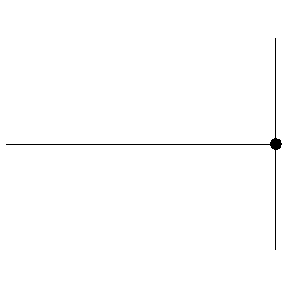Fictional Family Killers: Analyzing Merricat Blackwood and Itachi Uchiha
The psychology behind fictional family killings
Literature and popular media have hanker been fascinated with the concept of family annihilation — characters who commit the unthinkable act of kill their own blood relatives. Two peculiarly compelling examples come from immensely different fictional worlds: Merrick blackwood from Shirley Jackson’s novel” we have incessantly live in the castle” and Hitachi China from the manga and anime series” Naruto. ” Though these characters exist in exclusively different genres and mediums, they share the disturbing distinction of having murder their families, albeit for dramatically different reasons.
Merrick blackwood: a study in isolation and psychological disturbance
Merrick ((aMaryaKatherine)lackwood is the protagonist and narrator of shiShirley Jackson1962 novel. At first glance, she appappears be a peculiar but pretty ordinary young woman live with her sister coConstancend uncle juJuliann their family estate. Nevertheless, as the story unfold, readers discover a shocking truth: six years anterior to the novel’s events, meMerrickoison her entire family with arsenic laced sugar at dinner.
The motive behind Merrick’s actions
Unlike many fictional murderers, Merrick’s motivation isn’t explicitly state in the novel. Rather, jJacksonleave readers to piece unitedly the psychological puzzle. Several key factors appear to have ccontributedto her deadly act:
Social isolation and rejection
The blackwood family exist as outsiders in their community, with Merrick herself being peculiarly isolate. Throughout the novel, we see how the villagers treat the blackwoods with suspicion and disdain. This social rejection probable contribute to mMerricks disturb worldview and her desire to create an enclose world where lonesome she and her sister coConstanceould exist safely.
Desire for control
Merrick demonstrate numerous obsessive compulsive behaviors throughout the story, include bury objects, create protective spells, and establish rigid routines. These behaviors suggest a deep seat need for control over her environment. The family murders can bbe interpretedas the ultimate act of control — eliminate those who threaten her preferred way of life or who impose unwanted authority.
Protection of Constance
Merrick share aaremarkably close bond with her sister coConstanceSome literary analysts suggest that meMerrickill her family to protect conConstanceom perceive mistreatment or to ensure that she could have conConstancel to herself. This interpretation is support by merMerrickextreme possessiveness toward her sister throughout the novel.
Developmental issues and possible trauma
Despite being eighteen years old during the novel’s events, Merrick exhibit childlike behavior and think patterns. This arrest development suggest possible trauma or abuse in her past. While jJacksonne’er explicitly confirm this, there be subtle hints that the blackwood household may not have been a healthy environment, specially for a sensitive child like mMerrick
The aftermath: a castle of isolation
After the murders, Constance was initially suspect but acquit. The sisters, along with their ail uncle Julian (who survive the poisoning ) retreat alairnto isolation in their family home. This withdrawal represent both a continuation of merMerrickdesire for separation from society and a consequence of their actions.
When the village finally turns against them more actively, burn part of their home, the sisters retreat eve far, wall themselves up in the remains of their house — literally create th” castle” of the title. This final isolation represent the completion of mMerricks unconscious goal: total separation from the outside world with lonesome her beloved sister for company.
HitachiChinaa: sacrifice and impossible choices
In stark contrast to Merrick’s psychological disturbance, iHitachiChina’s family kill stems from a complex web of political necessity, loyalty conflicts, and sself-sacrifice As a character in mMarathikHashimotos ” aNaruto” iverse, itaHitachiist in a world of ninja villages where violence and difficult moral choices are commonplace.
The China massacre: context and motivation
HitachiChinaa slaughter his entire clan, the powerful China family, leave alone his younger brother sassumealive. This event, know as the uChinamassacre, initially appear to be an act of inexplicable cruelty or madness. Yet, as the series progress, the true complexity of itHitachi motivations is rrevealed
Prevent civil war
The primary reason for Hitachi’s actions was to prevent a coup d’état. TheChinaa clan, feeling marginalize within the hidden leaf village (kSonoma) had been plan to overthrow the village leadership. This coup would have probably reresultedn a civil war and potentially a larger conflict between ninja villages, cost countless lives. As a double agent work for both the China and kSonomas leadership, iHitachiwas privy to both sides’ plans.
Loyalty to the greater good
When face with the choice between his clan and his village, Hitachi choose what hebelievese would result in the least bloodsheboiler suitit. acceptsept a mission from the village elders to eliminate the threat by kill his own clan. Trepresentssent a utilitarian moral choice — sacrifice the few to save the many — though one of extraordinary personal cost.
Protection of assume
May hap the about poignant aspect ofHitachii’s decision was his insistence on spare his younger brotheassumeke. Not solely did he refuse to kill the one person hlovesve nearly, but to negotiateate with the village leadership to ensurassumeke’s safety and future. Thidemonstrateste that yet in his darkest momenHitachichi maintain a core of compassion and family loyalty.
Create a hero
In a further layer of self-sacrifice, Hitachi intentionally position himself as a villain inassumee’s eyes. By dothusy, he ggiveshis brother a purpose (revenge )and a path to power. ItHitachielieve that if sassumekill him and was hail as the hero who avenge the uChina his brother could return to koSonomaith honor, ne’er know the truth about the clan’s planned coup.
The aftermath: a life of deception
After the massacre, Hitachi live as a rogue ninja and join the criminal organizationKatsukii. This exile was part of his cover but too his self impose punishment. He lives with the psychological burden of his actions while continue to work secretly to protectSonomaa and his brother from the shadows.
Finally, as he’d plan, Hitachi die atassumee’s hands — though from a terminal illness arsenic practically as from combat. Lonesome after his death do the truth of his motivations come to light, reveal him not as a villain but as maybe the almost selfless character in the entire series.
Compare the killers: selfishness versus sacrifice
When examine these two fictional family killers side by side, the contrast in their motivations could not be more striking:
Personal desires versus collective need
Merrick kill for basically selfish reasons — to reshape her world accord to her desires and to possess her sister without interference. Her actions stem from psychological disturbance and personal want instead than any greater purpose.

Source: fictionhorizon.com
Hitachi, conversely, act against his personal desires out of a perceive duty to the greater good. Hesacrificese his family, his reputation, and finally his life to prevent wider bloodshed and to protect both his village and his brother.
Mental state and awareness
Merrick show signs of significant psychological disturbance. While she uunderstandsthat killing is wrong in a general sense (she ttakespains to hide her responsibility), she doesn’t demonstrate remorse or a full comprehension of the moral weight of her actions.
Hitachi isportrayedy as mentally sound but place in an impossible situation. He full understand the horror of his actions and bear the psychological burden of them throughout the remainder of his life. His awareness make his sacrifice all the more profound.
Aftermath and legacy
Merrick achieve her goal of isolation with cConstance but this ” ictory “” hollow — they live in a burburn-outell of a home, subsist on garden vegetables and live as local legends and objects of fear. There be no growth or redemption in her story.
Hitachi’s legacy is more complex. While hediese bear the mark of a villain, the eventual revelation of his true motivations transform how both characters within the story and readers / viewers perceive him. His actions, while nevertheless horrific, gain a dimension of tragedy and noble sacrifice absent froMerrickat’s tale.
Literary and cultural significance
Both characters have achieved iconic status in their respective mediums, but for different reasons:
Merrick as psychological study
Shirley Jackson’s creation of Merrick represent a masterful psychological portrait that continue to be aanalyzedin literary circles. The unreliable narration, the slow revelation of the truth, and the complex psychology make” we have constantly live in the castle ” landmark work in gothic literature and psychological fiction.
Merrick embody the ” ncanny”—the familiar make strange — as she dedescribesorrific acts in her childlike, matter of fact voice. This dissonance create the distinctive unease that characterize jJacksons work.
Hitachi as moral complexity
HitachiChinaa has become one of the almost beloved characters in the” nNaruto” ranchise exactly because of his moral complexity. In a medium ofttimes criticize for simplistic portrayals of good and evil, itHitachitand out as a character who defy easy categorization.
His story explore themes of sacrifice, the cost of peace, the failures of systems and institutions, and the impossible choices face during conflict. These themes give the shÅnen manga / anime series a depth that has contributed to its endure popularity beyond its target demographic.
Psychological and philosophical implications
Beyond their narrative functions, these characters invite readers and viewers to consider deeper questions:
The nature of evil
Both characters commit acts that would typically define them as villains, yet they challenge simplistic notions of evil. Merrick’s actions stem from psychological disturbance quite than malice in the traditional sense, while iHitachis stem from a desire to prevent greater harm.
These portrayals ask us to consider whether evil is defined by actions alone or by the intentions and circumstances behind those actions.
The limits of moral systems
Hitachi’s story peculiarly challenge rigid moral frameworks. His utilitarian choice — sacrifice the few to save the many — raise questions about whether such calculations can always really justify extreme actions. Itto highlightt the failure of the systems that place him in such an impossible position.
The impact of trauma and isolation
Merrick’s story explore how isolation and possible trauma can warp a develop mind. Her disconnection from normal social bonds and possible experiences of rejection or abuse manifest in extreme behavior that far isolate her — a vicious cycle that the novel portray with disturb clarity.
Conclusion: beyond simple villainy
Merrick blackwood and iHitachiChina, despite their dramatically different portrayals and motivations, both demonstrate the power of fiction to explore the darkest human actions in ways that challenge readers and viewers to look beyond simple judgments.
Merrick kill her family out of a disturb desire for control and isolation, achieve a pPyrrhicvictory that leave her and cConstancelive as ghosts in the ruins of their former life. Her story serve as a chilling psychological case study of how a mind can become sol distorted that family annihilation seem a reasonable solution to perceive problems.
Hitachi kill his family as an act of devastating sacrifice, choose what hebelievese was the lesser of two evils in an impossible situation. His story examine how yet the about virtuously upright individuals can be force into horrific actions by fail systems and irreconcilable conflicts of loyalty.

Source: fictionhorizon.com
Unitedly, these characters remind us that behind yet the virtually heinous actions in fiction — and may hap in life — lie complex webs of psychology, circumstance, and choice that resist simple categorization. Their endure popularity speak to the human fascination with understand the unthinkable, with explore the darkest corners of possibility through the safe distance of fiction.



